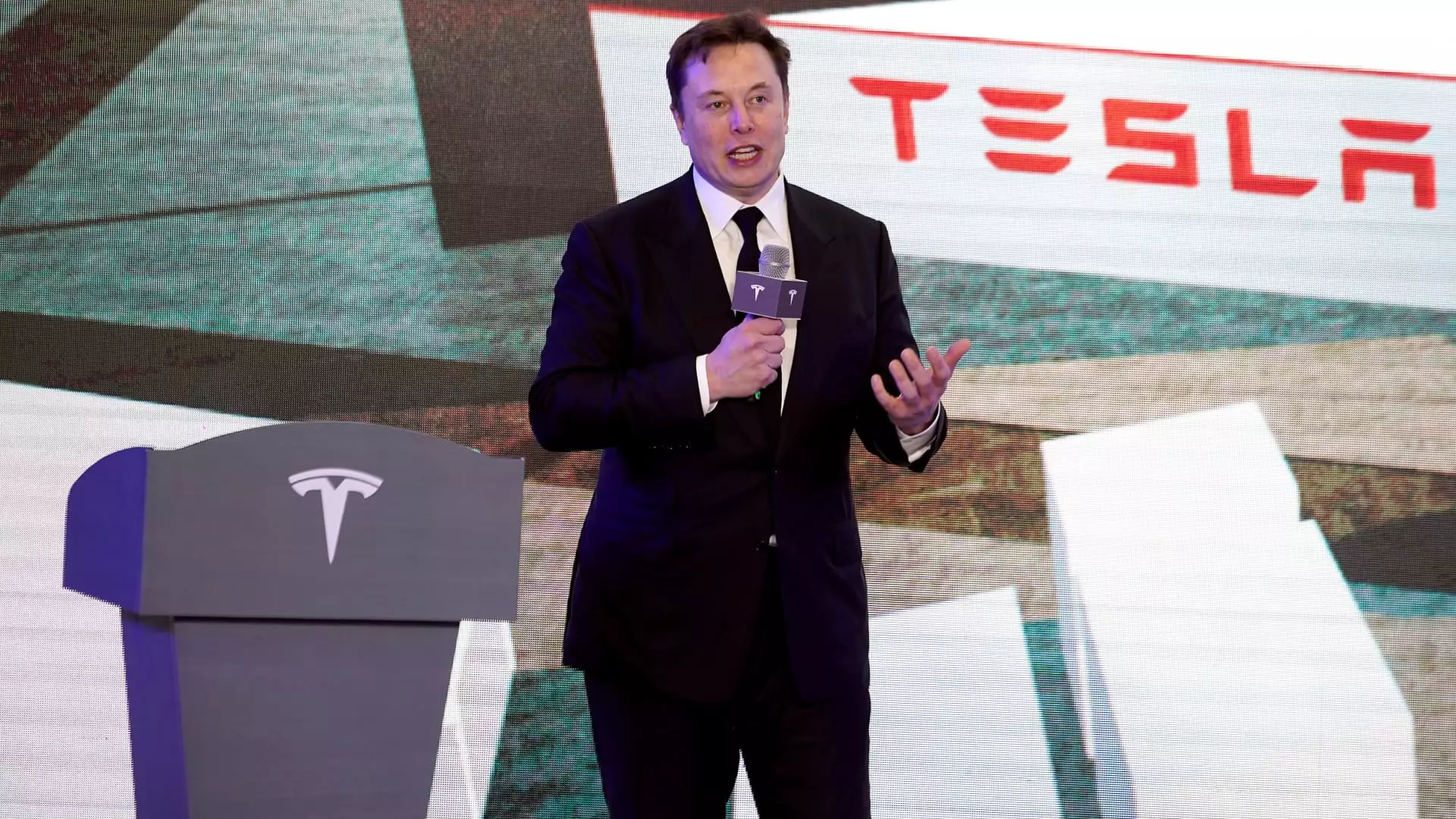In a surprising regulatory maneuver, Tesla has modified its corporate bylaws to impose a significant hurdle for shareholders seeking to sue the company. This change, which came into effect on May 15, mandates a daunting ownership threshold of 3% of Tesla’s issued and outstanding shares to initiate or continue a derivative lawsuit. Given Tesla’s current market valuation exceeding $1 trillion, this requirement translates to a staggering investment of over $30 billion—a figure that few individual shareholders could tolerate or attain. While some may see this as a necessary evolution for a rapidly growing company, it’s a move that raises ethical questions and sphere of influence impacts over corporate governance.
Elon Musk’s Tesla is not just a car manufacturer; it’s a cultural phenomenon and a global leader in innovation. However, this new bylaw casts a shadow over the company’s reputation as a progressive and shareholder-friendly organization. Rather than upholding transparency and accountability, Tesla appears to be bolstering its defenses, erecting formidable barriers for potential litigants who might argue that the company’s board or executives have violated their fiduciary duties. Critics could argue that this shift illustrates an alarming trend where corporations increasingly seek to prioritize their interests over those of their shareholders.
Legal Loopholes and Corporate Governance
The rationale behind Tesla’s bylaw change seems to hinge on a Texas state law that provides corporations with the flexibility to limit shareholder lawsuits against key insiders for alleged breaches of fiduciary duty. Ann Lipton, a corporate law educator at Tulane, articulates the stark reality of this new threshold. For a company of Tesla’s stature, such a rule solidifies a strong legal fortress, making it exceedingly challenging for disgruntled shareholders to hold executives accountable. Once, in Delaware, obtaining legal recourse could be as simple as owning a handful of shares; now, it requires considerable wealth and established power.
In a way, this shift reflects the disillusionment among many corporate boards regarding shareholder activism. Many directors may feel that the voices of their shareholders, often representing a broad range of interests and ideals, can disrupt the vision for long-term strategic growth. However, to institutionalize such barriers can lead to corporate neglect and a sense of entitlement among executives who operate without scrutiny. Musk’s decision to escape to Texas after losing the 2018 CEO compensation-related lawsuit exemplifies a troubling pattern where corporations can manipulate the legal landscape to escape accountability for poor decision-making.
A Dangerous Precedent
The question arises: Is Tesla’s move a calculated corporate strategy or a detrimental precedent for shareholder rights? If Tesla succeeds in dodging the repercussions associated with fiduciary breaches via this new bylaw, it might embolden other corporations to adopt similar tactics. Instead of fostering environments where shareholders feel empowered to safeguard their investments, we may witness a corporate landscape increasingly dominated by a small circle of insiders, ensuring that their interests reign supreme.
This bylaw change diminishes the voice of the average investor, essentially placing them at a grave disadvantage. The threshold is so high that it arguably elevates the status of large institutional investors while silencing individual shareholders and smaller entities. This could create an imbalance that allows corporations to evade genuine oversight, which is essential for sound corporate governance.
Reflection on Corporate Responsibility
As Tesla embarks on this journey in its corporate governance model, the implications stretch far beyond its own balance sheets and stock performance. The company must critically assess its role in shaping the future of corporate America. The move appears opportunistic, taking advantage of legal loopholes rather than positioning itself as a champion for ethical conduct and transparency.
Ultimately, the road ahead for Tesla will likely involve navigating intricate dynamics between its aspirations for innovation and the ethical imperatives dictated by its shareholders. Balancing these interests is crucial. If Tesla is to maintain its influential status while keeping the trust of its shareholders, a more inclusive approach to governance should be prioritized, ensuring that the ethos of accountability doesn’t fade into obscurity. The stakes are high, and the corporate world is watching closely.

